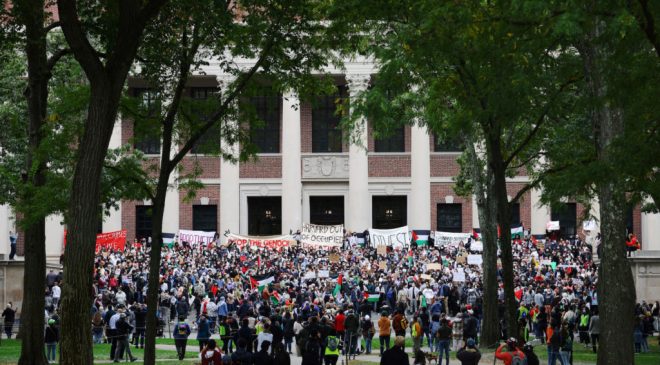
The situation at Columbia University and other campuses underscores the complexities surrounding issues of free speech, protest, and antisemitism in the context of the Israeli-Palestinian conflict. It is important for universities to uphold the principles of free expression and peaceful protest while also addressing concerns related to discrimination and safety on campus.
The actions taken by Columbia University’s administration, including the suspension of protesters and student groups, have sparked criticism from various organizations and faculty members. The involvement of law enforcement in removing protesters raises questions about the appropriate response to student activism on campus.
It is crucial for universities to create spaces where diverse perspectives can be expressed and debated, while also ensuring a safe and inclusive environment for all members of the community. Addressing allegations of discrimination, including antisemitism and Islamophobia, should be done through fair and transparent processes that uphold the rights of all individuals involved.
As protests continue to unfold on university campuses, it is essential for administrations to engage with students and stakeholders in a constructive manner, respecting the rights of individuals to express their views while promoting a culture of dialogue and understanding. Universities play a key role in fostering open discourse and facilitating peaceful engagement on contentious issues like the Israeli-Palestinian conflict.
